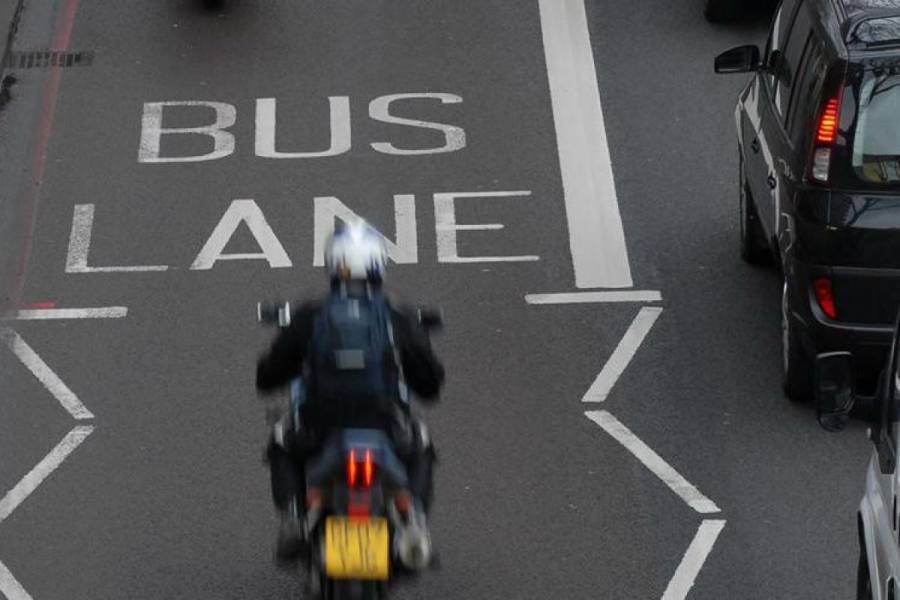Government Scraps Motorcycle Bus Lane Access Proposal Despite Overwhelming Support

The Department for Transport (DfT) has today announced it will not proceed with plans to grant motorcycles and mopeds default access to bus lanes, despite overwhelming public and stakeholder support.
The consultation results reveal that 98% of individual respondents (13,885 out of 14,089) and 93% of stakeholder organisations (185 out of 198) supported the measure. Despite this, the DfT stated it has “no policy to encourage greater uptake of motorcycles,” signalling a stark departure from the previous government’s vision to embrace light, sustainable vehicles as part of achieving net zero emissions by 2050.
Mopeds, motorcycles, and other powered light vehicles (PLVs) are recognised for their ability to reduce congestion, lower emissions, and ease pressure on road networks. Granting bus lane access would not only have improved safety for new and experienced users by providing segregated road space, but also made PLVs a more appealing alternative to cars and vans.
The DfT’s decision, citing a lack of evidence on safety benefits, leaves no plans to revisit or further investigate the policy. This stands in contrast to its prior acknowledgment of PLVs’ potential to deliver shorter journey times, reduced congestion, and meaningful environmental benefits.
MCIA CEO Tony Campbell expressed deep disappointment: “Today’s decision is as shocking as it is disappointing. It flies in the face of clear evidence and overwhelming public support. It contradicts years of work promoting PLVs as a sustainable transport solution.
“By rejecting default bus lane access, the Government has hindered the transition to lighter vehicles, sending a confusing and discouraging message to prospective users. This policy is not just a blow to riders but to Britain’s broader ambition to modernise its transport network and achieve net-zero goals.
“The PLV sector offers an untapped opportunity to reshape personal mobility in the UK. We urge the Government to reconsider its approach and adopt measures that make these vehicles a practical and attractive choice for consumers and businesses, ensuring they play a pivotal role in Britain’s sustainable transport future.
The decision risks stalling momentum for PLVs, a sector poised to drive innovation, reduce carbon emissions, and support economic growth. Industry leaders fear it will discourage a new generation of users and weakens Britain’s commitment to sustainable transport.
MCIA and its stakeholders will continue to advocate for policies that encourage the adoption of PLVs and deliver benefits to all road users.”
ENDS
Notes for Editors:
MCIA represents over 90% of the supply side of the industry; the manufacturers and importers of powered two wheelers (PTWs) and other PLVs (or L-Category vehicles), accessory and component suppliers and companies providing associated services.
For more information about MCIA or to interview Tony Campbell, CEO, please call 07976 714094 or email s.waters@mcia.co.uk.
Follow MCIA on X: @MCIATweets
Follow MCIA on LinkedIn @MCIA UK
Examples and definitions of the different L-Category Vehicles (L1 to L7) can be found here.
